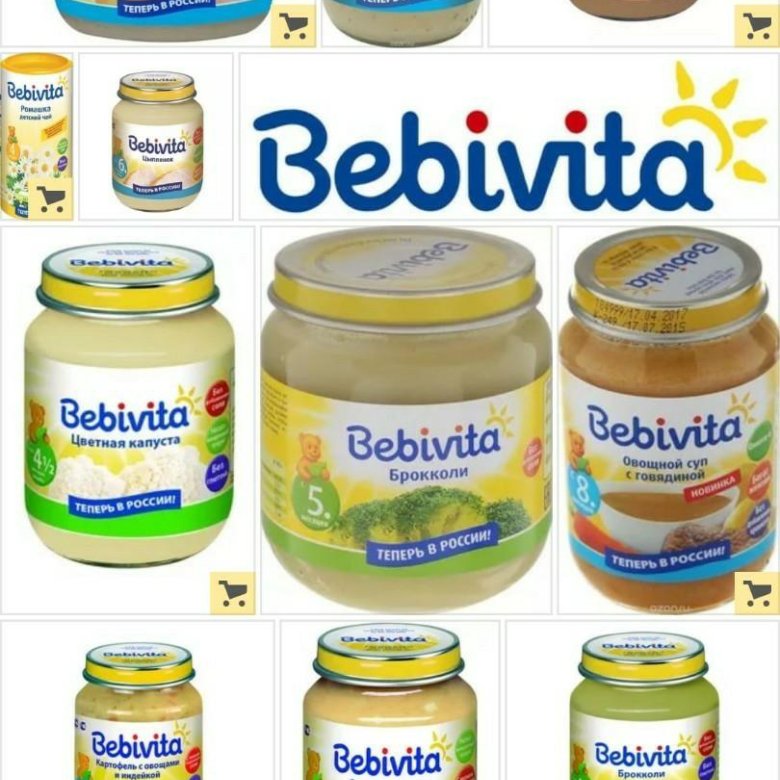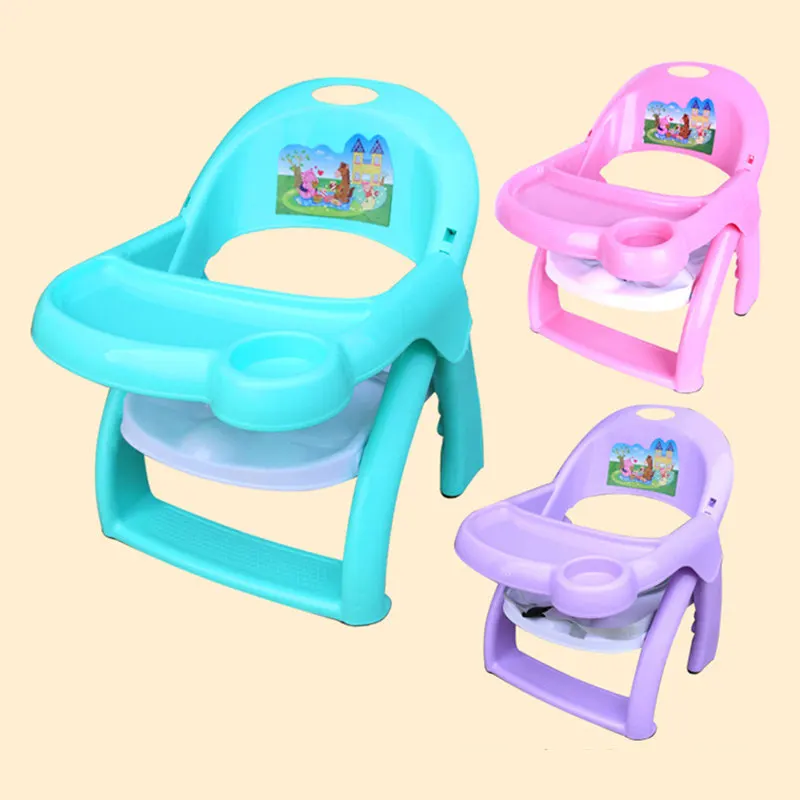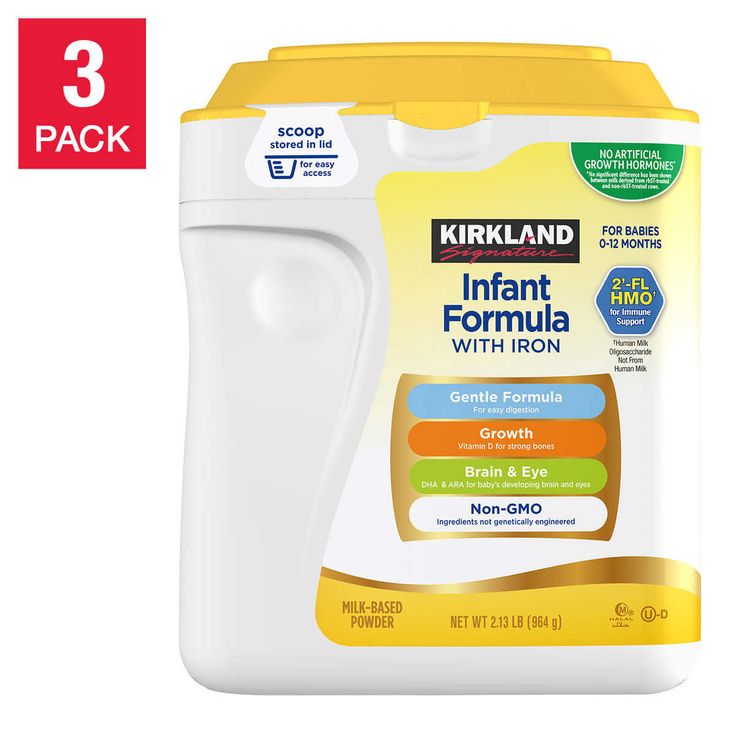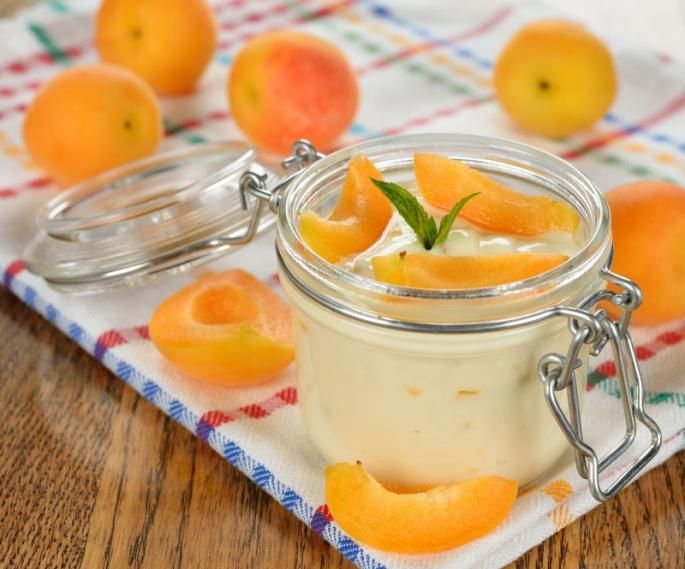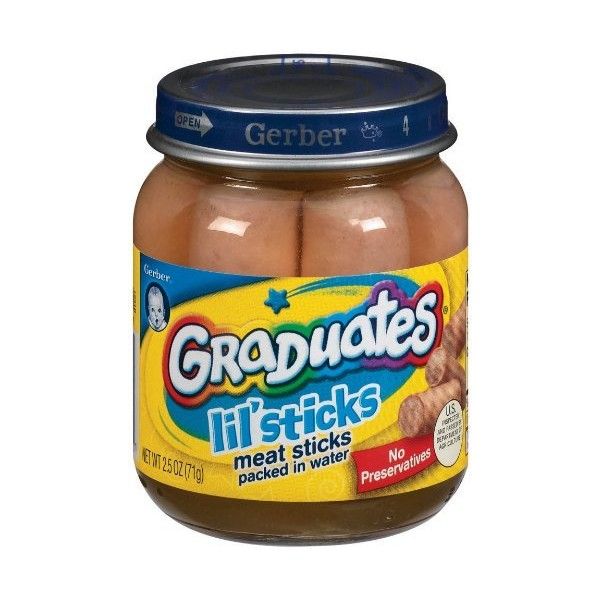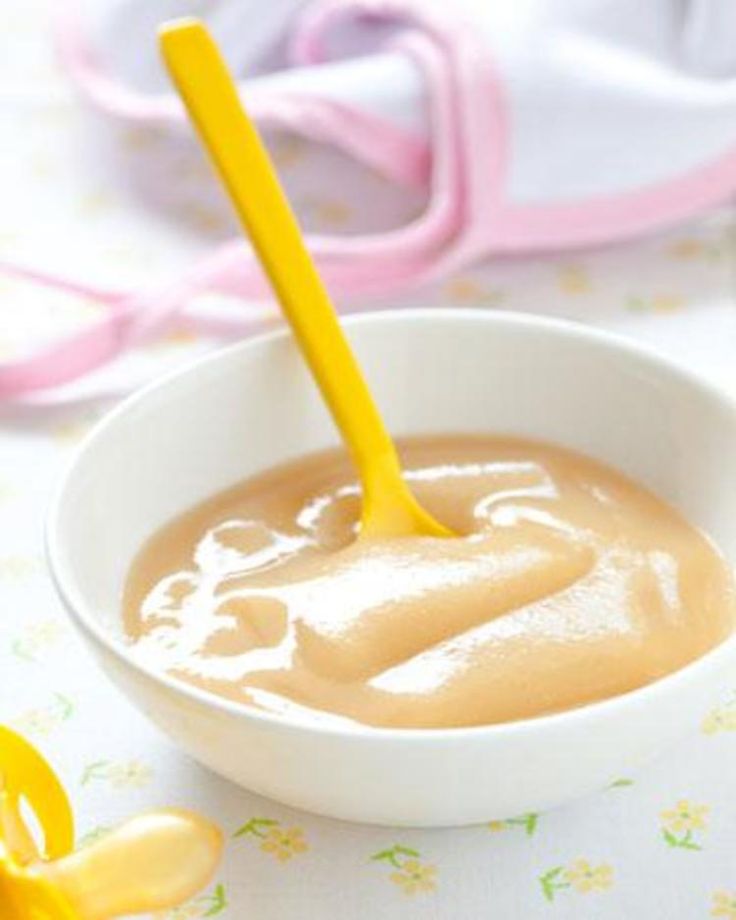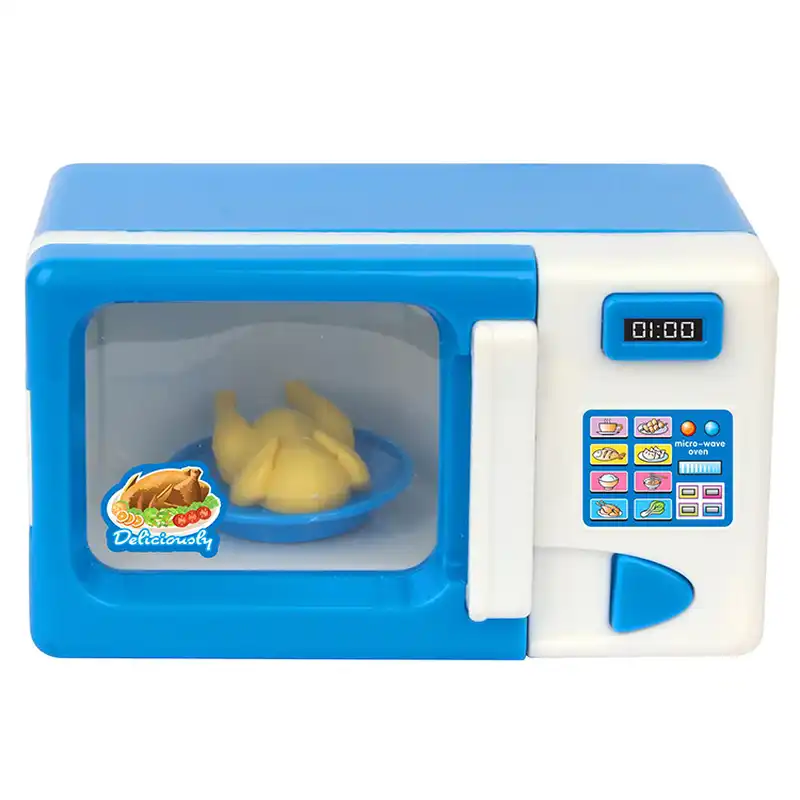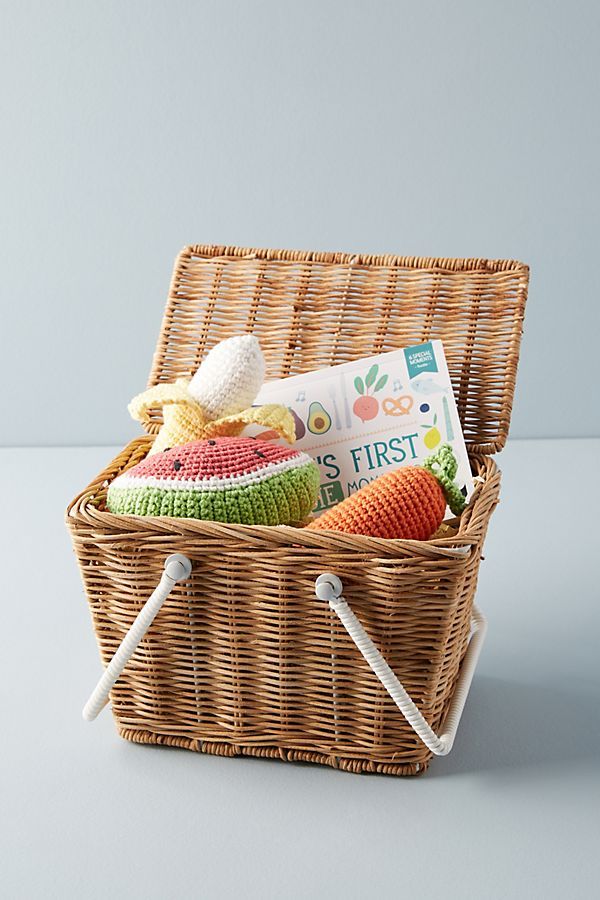Parents choice baby food puree
Review: Parent’s Choice Organic Baby Food Purees
Best for Parents looking for budget-friendly organic baby food puree
Top benefits 20 flavours, no added sugar, salt or fat
Considerations Citric acid in some flavours, pouch isn't recyclable
Bottom line Parent's Choice Organic Baby Food Puree is super portable with its secure twist-lid, there's a bunch of flavour combinations to choose from, and its price point is very budget-friendly
Buy
walmart.ca CAD $1.00 walmart.com USD $1.48
For feeding hungry little ones fast—especially when you’re on-the-go—you can’t beat the convenience of organic fruit and veggie purees in a pouch. If you’re looking for a budget-friendly organic baby food, Parent’s Choice Organic Baby Food Purees are a great pick. With more than 20 flavours, ranging from single-fruit offerings to more advanced combos of veggies, fruits and grains, and a nice consistency and smooth texture, they’re ideal for baby’s introduction to solid foods.
We worked with registered dietician Cara Rosenbloom to assess the ingredients in the purees we tested. All Parent’s Choice Organic Baby Food Purees are made without added salt, sugar or fat—things you shouldn’t find in baby foods. Some of the purees contain ascorbic acid, which might sound suspect since it’s not a whole food ingredient, but it’s simply vitamin C, and Rosenbloom isn’t concerned about it being in baby foods.
The only hiccup in overall quality of ingredients is the presence of citric acid, a preservative, in some of the Parent’s Choice purees. Rosenbloom says citric acid is an unnecessary ingredient (in fact, many organic baby foods are made without it).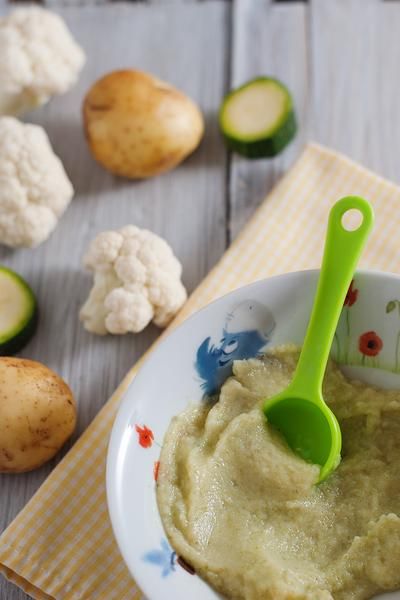 If you want to avoid this preservative but still take advantage of the budget-friendly price point of these purees (they’re cheaper than organic purees from other brands), you’ll have to do some label reading when you’re shopping.
If you want to avoid this preservative but still take advantage of the budget-friendly price point of these purees (they’re cheaper than organic purees from other brands), you’ll have to do some label reading when you’re shopping.
What did our parent testers think of the ingredients in the purees they sampled with their babies? All but one said they feel good about feeding Parent’s Choice Organic Baby Food Purees to their little ones based on the ingredients, and they’re happy with the ingredients used.
When you’re starting solids, always introduce new foods one at a time, waiting a few days before you try another new food. This will allow you to easily identify any allergic reactions or sensitivities.
TASTE AND TEXTUREWhile adults typically find the smell, flavour and texture of a lot of baby foods rather unappealing, our Today’s Parent Approved editors found these purees quite tasty and appealing. The Apple, Mango, Sweet Potato & Millet puree is a smooth puree that has a strong, sweet mango flavour with a touch of apple and a hint of the sweet potato’s earthiness.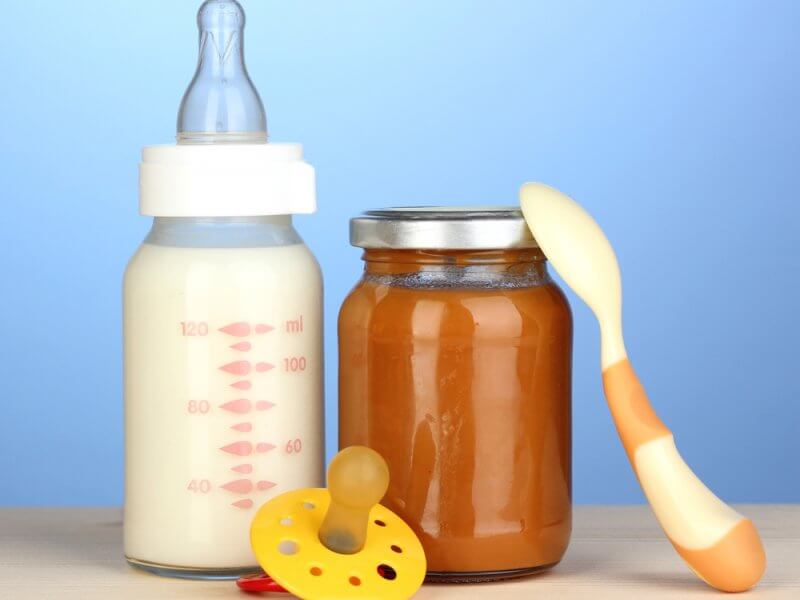 The Pear & Pea combo (which does contain citric acid) also stands out for its smoothness and subtle pea flavour—a welcome departure from peas being the dominant, often unpleasant flavour in a lot of other baby foods. All the babies who tried the Parent’s Choice purees happily gobbled them up—a big win.
The Pear & Pea combo (which does contain citric acid) also stands out for its smoothness and subtle pea flavour—a welcome departure from peas being the dominant, often unpleasant flavour in a lot of other baby foods. All the babies who tried the Parent’s Choice purees happily gobbled them up—a big win.
It’s a good blend, and we liked it for several meals without getting tired of it.” —Michelle, mom of one
PORTABILITY AND EASE OF USEParent’s Choice Organic Baby Food Purees come in a 128-mL pouch with a resealable twist-off cap. The cap comes off with a click, letting you know the contents are fresh. All of our parent testers found it easy to dispense these purees onto a spoon for feeding, without any messy dribbles running down the outside of the pouch.
While older babies and toddlers may be able to snack directly from a puree pouch, experts caution against doing this regularly. Eating in this way means kids aren’t learning to eat from a spoon or dish—skills you want your child to develop. Plus, it introduces a lot of bacteria into the food.
Plus, it introduces a lot of bacteria into the food.
You’ll want to give the pouch a good shake before feeding baby. In our lab tests, we found that the first bit of food that comes out of puree pouches is often a bit thicker and darker in colour than the rest of the puree. There’s nothing wrong with it—it’s just natural oxidization at work—but if it worries you, you can always discard it.
The flat, compact package is easy to store and carry around. While the cap goes back on tightly without leaking, unless you can refrigerate the leftovers, they must be thrown away—a drawback while travelling. It’s also worth noting that the pouches aren’t recyclable, though the caps are.
VALUEOnce you’ve opened a Parent’s Choice puree, it should be refrigerated right after a feeding and used up within 24 hours—a pretty narrow timeframe, but standard for purees sold in pouches. One of our parent testers wasn’t able to use up the baby food within 24 hours, but nevertheless, all of our testers said they would purchase this baby food.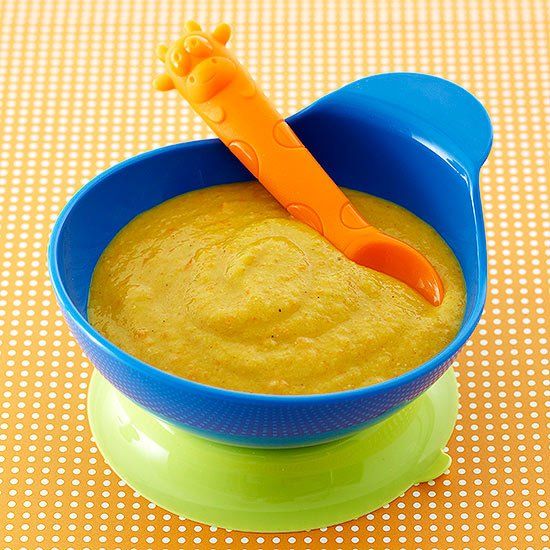 On top of the great taste and organic ingredients, they feel the price point makes this a standout product.
On top of the great taste and organic ingredients, they feel the price point makes this a standout product.
Purees that come in a resealable pouch are super convenient, and the price point of the Parent’s Choice Organic Baby Food Purees can’t be beat. Our editors were impressed with the flavours and textures of these budget-friendly organic purees, though we wish citric acid wasn’t in some of them. Our parent testers were pretty impressed too, giving the Parent’s Choice purees good or very good ratings for quality, ease of use and value for money. And parents told us that the toughest critics of all—their babies—really enjoyed nearly all of the purees they tried. A solid endorsement if there ever was one.
My baby loved every single one of them. She enjoyed feeding herself more than with a spoon. The flavours were very delicious to me too!” —Diane, mom of one
Baby Formula Brand Information | Parent's Choice Formula
No Parent's Choice Infant Formulas Are Involved in or Impacted by Abbott’s Recall.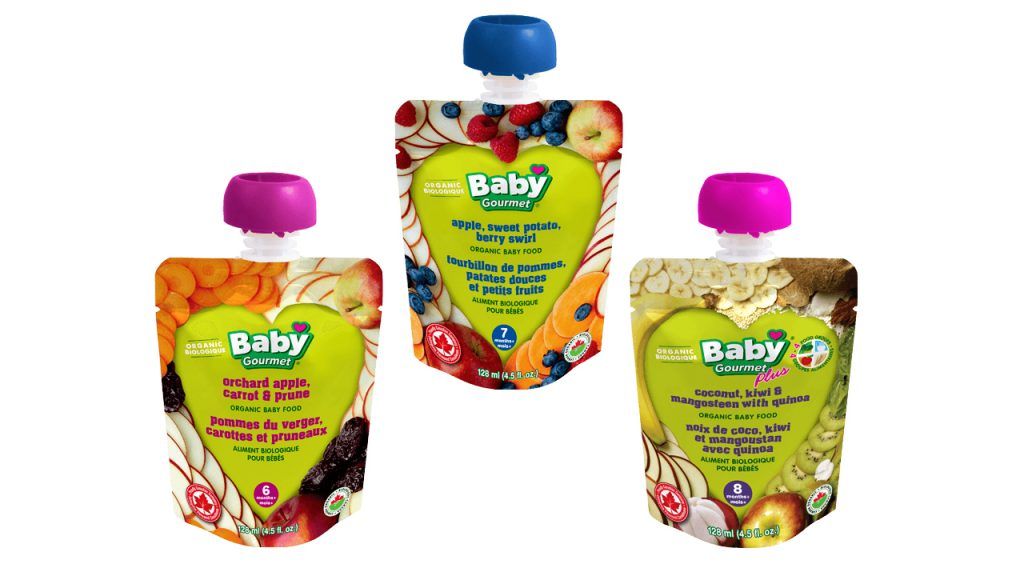 Read more
Read more
Why Millions of Parents Choose Our Baby Formula Brand
Introduced in 1998, Parent's Choice™ Infant Formula has been a leading choice for feeding babies made by millions of parents across the United States. Parent's Choice™ is Walmart's exclusive, private brand that today extends beyond infant formula:
- Baby and Toddler Foods including Yogurt Bites, Cereals, Cereal Bars, Little Puffs®, Little Fruits®, Little Munchers™, and Little Wheels™
- Toddler Formula for Older Infants
- Ready-to-Drink Pediatric Nutritional Beverages
- Pediatric Electrolyte Rehydration Solution and Powder Sticks
The Parent's Choice™ family of baby and toddler products is exclusively available at Walmart locations.
Our Infant Formula Meets or Exceeds the Highest Quality Standards
Why do so many Americans choose our infant formulas to meet their infant nutrition requirements? The reason is more and more parents are discovering the truth about Parent's Choice™ Infant Formula.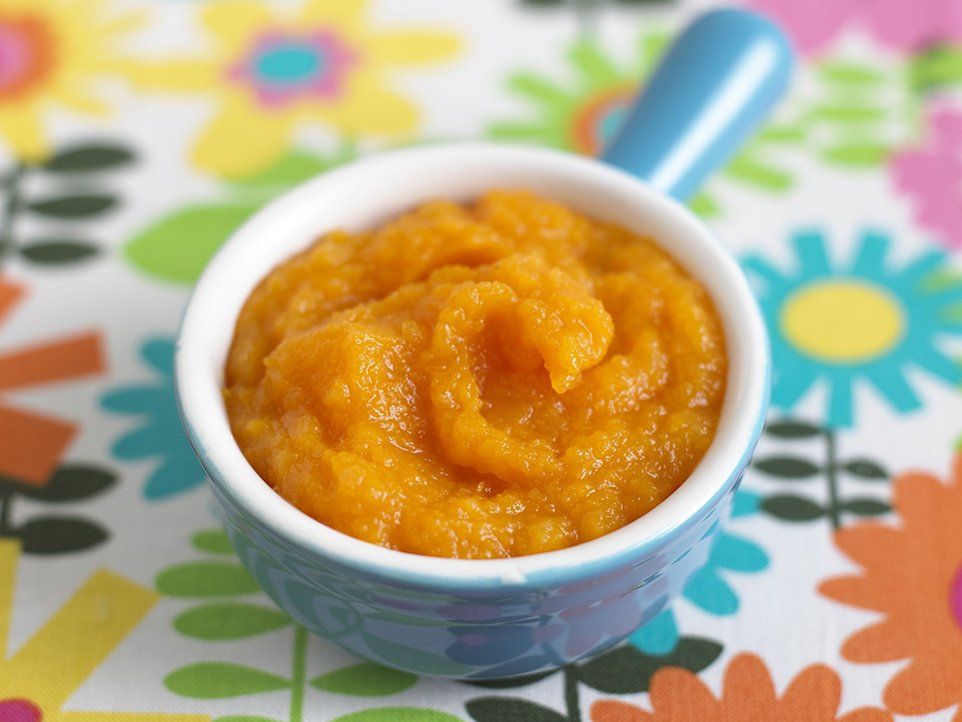 Our formula is:
Our formula is:
- Nutritionally comparable to all the expensive baby formula brands, including Enfamil®, Similac®, and Gerber® "national brand" infant formulas.
- Meets FDA nutritional standards and the recommendations of the AAP – the American Academy of Pediatrics.
- Clinically proven to support growth and development.*
- Easy to digest and has been well tolerated by millions of babies.
In addition, a new study on switching baby formula by pediatric medical researchers found that Parent's Choice™ Infant Formula is clinically proven to be as well tolerated as national brand formulas.
Higher price doesn't equal higher quality and all brands of formula must meet the same requirements according to FDA's regulation of commercial infant formulas. That's the truth.
Produced in FDA-Inspected Facilities
Parent's Choice Infant Formulas are produced in factories located in Ohio and Vermont, U.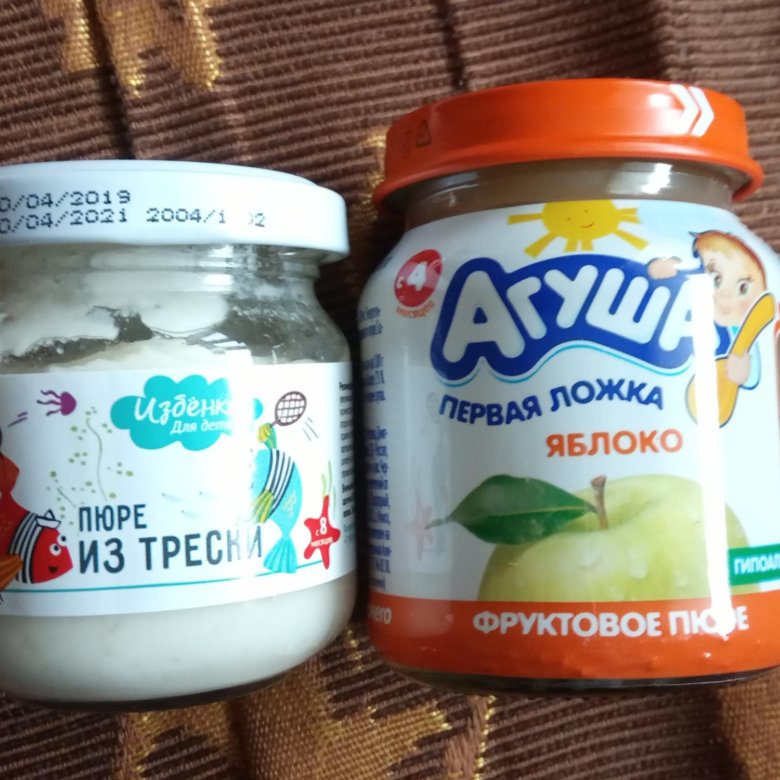 S.A. Our dairy ingredients are sourced from leading dairy markets, including the United States, Canada, and New Zealand. The FDA-inspected, ISO 9001:2015-certified facility has been producing infant formulas for more than 30 years in strict compliance with good manufacturing practices (GMP).
S.A. Our dairy ingredients are sourced from leading dairy markets, including the United States, Canada, and New Zealand. The FDA-inspected, ISO 9001:2015-certified facility has been producing infant formulas for more than 30 years in strict compliance with good manufacturing practices (GMP).
Our main focus is on quality and compliance; our manufacturing operations and facilities adhere to the Infant Formula Act and meet supplemental certification requirements. For example, we are compliant with the Safe Quality Food (SQF) Program, which certifies our food safety and quality management system adheres to international and domestic food safety regulations.
We also maintain other certifications for specific consumers:
- We are certified kosher by the Orthodox Union (OU). This means that Parent's Choice™ Infant Formula can be consumed by all those who observe kosher dietary laws or who have other dietary requirements.
- We are approved by Quality Assurance International (QAI) to manufacture organic formula that is compliant with comprehensive USDA organic regulations.
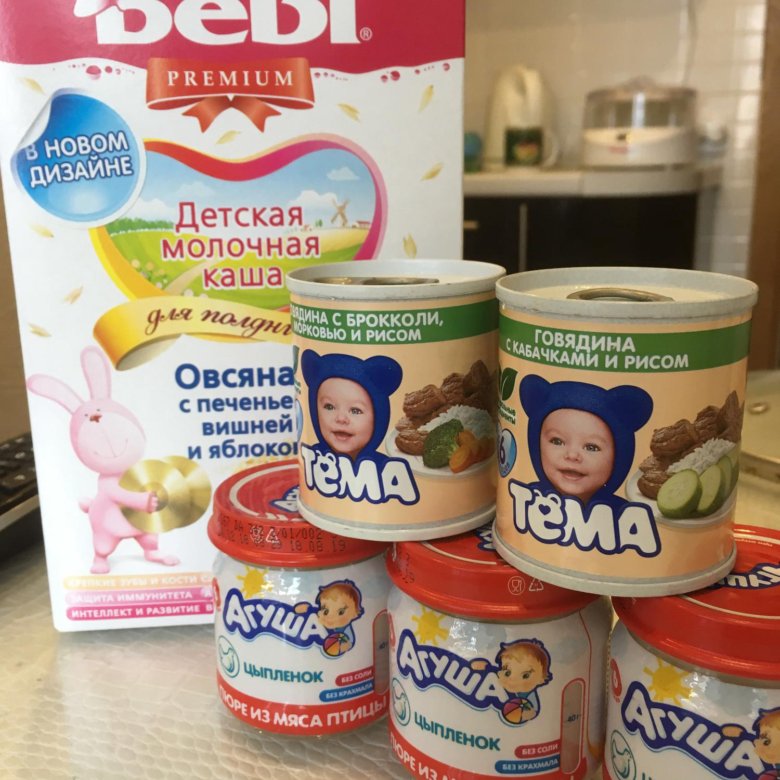
Ultimately, all Parent's Choice™ Infant Formulas meet the nutritional levels recommended by the U.S. National Academy of Science-National Research Council and the American Academy of Pediatrics, the largest organization of pediatricians dedicated to the health and well-being of infants and children.
Our Infant Formula Meets FDA Nutrition and Quality Standards
More moms and dads realize that all manufacturers of infant formula must begin with safe food ingredients that are approved for use in infant formula. This means our formulas meet the nutritional requirements of the Federal Food, Drug, and Cosmetic Act for infant formula under the regulation of the FDA. Infant Formula is often relied on as a sole source of nutrition, which is why formula quality and safety requirements are governed by federal law.
Manufacturers are also required to provide FDA assurance of the nutritional quality of each infant formula before it can be marketed to moms, dads, and other caregivers.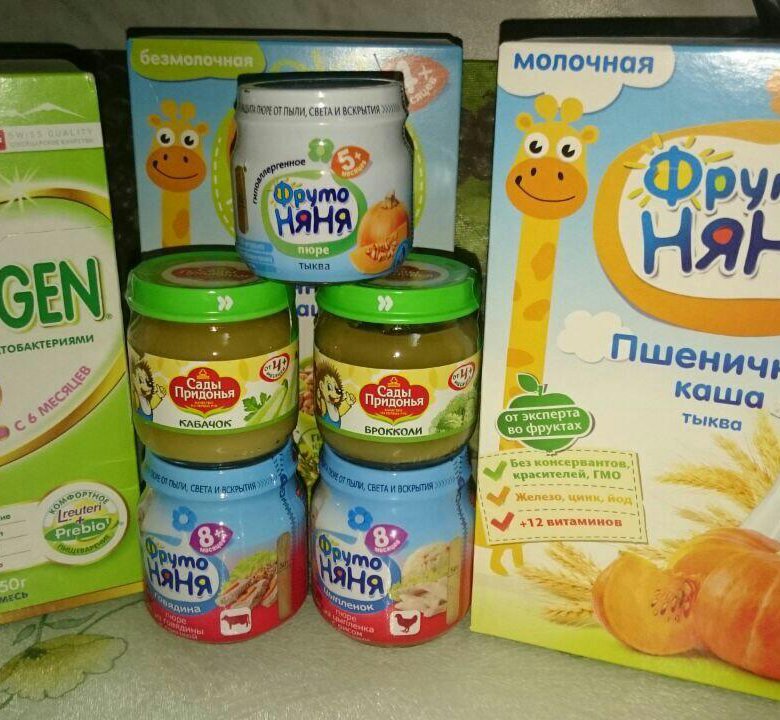 In addition, requirements for specific labeling, nutrient content, and quality control measures must be met and documentation including records and reports must be submitted to FDA for verification.
In addition, requirements for specific labeling, nutrient content, and quality control measures must be met and documentation including records and reports must be submitted to FDA for verification.
Great Savings and Value: Save Up to $600 a Year on Infant Formula
We know that having babies and raising children gets expensive. That's why we offer a baby formula calculator to help you compare and discover the potential savings by switching formula. Parents can save up to $600 a year* with Parent's Choice™ Infant Formula.
*Studied before the addition of prebiotics.
**Formulas and their comparable national brands. Retail prices are from a October 2017 retail price survey of assorted Wal-Mart stores. Actual prices and savings may vary by store and location. Enfamil® is a registered trademark of Mead Johnson & Co. Similac® is a registered trademark of Abbott Laboratories. Gerber® is a registered trademark of Société des Produits Nestlé, S.A. Parent's Choice™ Infant Formula is not made by or affiliated with Mead Johnson & Co. , Abbott Laboratories, or Société des Produits Nestlé, S.A.
, Abbott Laboratories, or Société des Produits Nestlé, S.A.
8 best baby puree manufacturers in 2022
The first feeding of a baby is an exciting event for parents, which causes a lot of controversy: what products are better to use, at what age to start, cook food for the baby yourself or buy store-bought options. Manufacturers have taken care of the proper nutrition of babies and have prepared different options for baby purees that are suitable from a very early age. Today we will discuss which of them will be useful and safe for the baby, and which purees are better to refuse.
Content [show]
- What to pay attention to when buying children's puree
- Composition
- Age restrictions
- Type of packaging
- Information on the label
- Rating of manufacturers of children's purees 1. Best foreign baby food brand: Gerber
- 2. Best Russian baby food brand: Frutonyanya
- 3. HiPP
- 4.
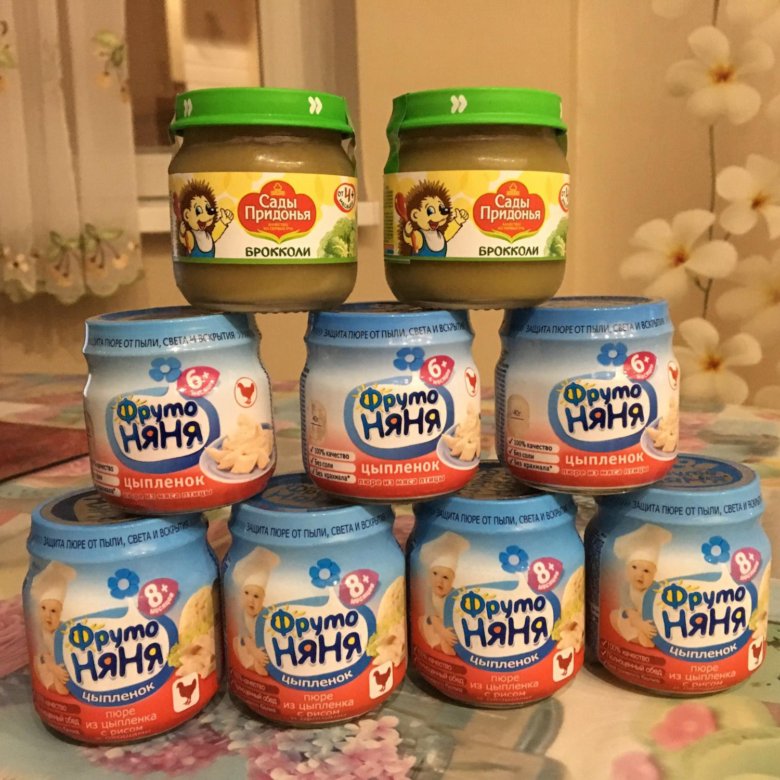 Heinz
Heinz - 5. Nutricia
- 6. Semper
- 7. Grandmother's basket
- 8. Humana
- What puree to choose for the first feeding?
- How to give puree to a child?
- Can I make my own puree?
- What are the pros and cons of store-bought baby food options?
- Can I be allergic to puree?
What to look for when buying baby puree
Composition
There are 4 variants of baby purees:
- vegetable purees - from carrots, zucchini, broccoli, pumpkin, potatoes, spinach, cauliflower;
- fruits and berries - pear, apricot, banana, apple, plum, currant, blueberry;
- meat - veal, chicken, turkey, rabbit;
- fish - based on hake, pollock, cod, pink salmon.
Prohibited ingredients include flavor enhancers, artificial colors, flavors and preservatives. The content of salt, sugar, soy proteins in baby puree is undesirable.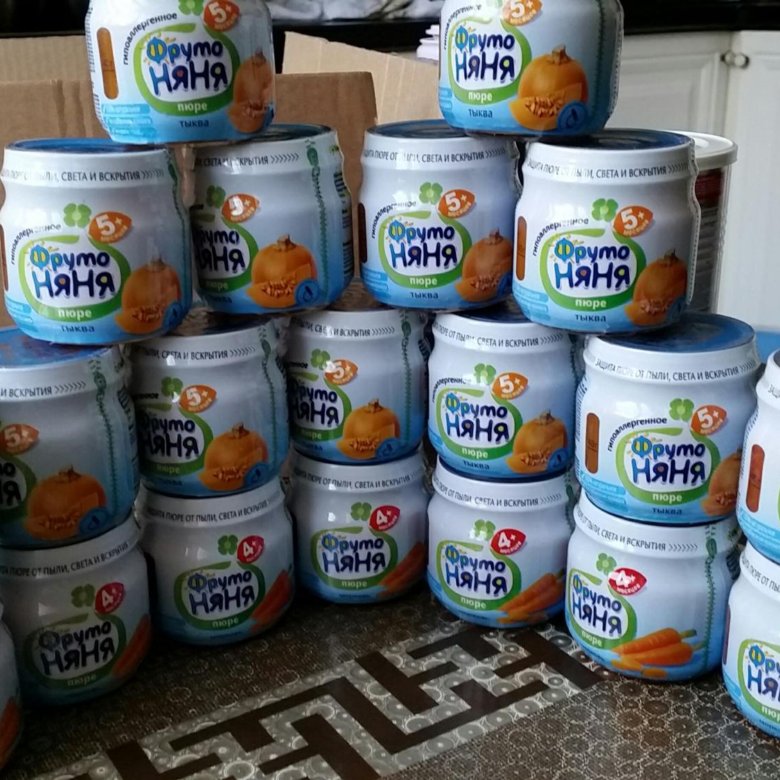 The ideal version of the product should include only 2 components - natural fruits / vegetables / meat and water to create the right consistency.
The ideal version of the product should include only 2 components - natural fruits / vegetables / meat and water to create the right consistency.
Age limit
Most baby purees are for babies 6 months and older, the recommended age for breastfed babies. In this case, the label will be marked "6+". Multi-component puree options may be labeled “7+”, “8+”, etc. If you are choosing the first fruit and vegetable food for an artificial baby, then pay attention to products that are allowed from 4 months.
Package type
The best option is a glass jar with a hermetically sealed lid. This is the most environmentally friendly and reliable way to pack mashed potatoes, since glass does not react with food and does not affect their properties. It is better not to buy puree in plastic containers, as it may contain compounds that are toxic to the baby.
Product size
You can find various options on sale - from the minimum 80 ml to large economy jars of 190-200 ml. When buying, be guided by the age and nutritional needs of the baby, since an open jar with the product is stored for no more than 1-2 days, and during this time you need to use the entire volume. In order not to throw away the leftovers, for a baby up to 7-8 months old who are just starting to eat complementary foods, take a package of the minimum volume. Older children who like fruit and vegetable purees should take a large container - it's cheaper.
When buying, be guided by the age and nutritional needs of the baby, since an open jar with the product is stored for no more than 1-2 days, and during this time you need to use the entire volume. In order not to throw away the leftovers, for a baby up to 7-8 months old who are just starting to eat complementary foods, take a package of the minimum volume. Older children who like fruit and vegetable purees should take a large container - it's cheaper.
Information on the label
Reliable manufacturers of baby food indicate the most detailed information that may be of interest to parents:
- date of manufacture and end date of consumption;
- shelf life after opening the can;
- requirements for storage conditions;
- complete list of ingredients and their nutritional value;
- cooking method (optional).
If baby food is intended for infants with specific dietary requirements, the manufacturer must mark the front of the label.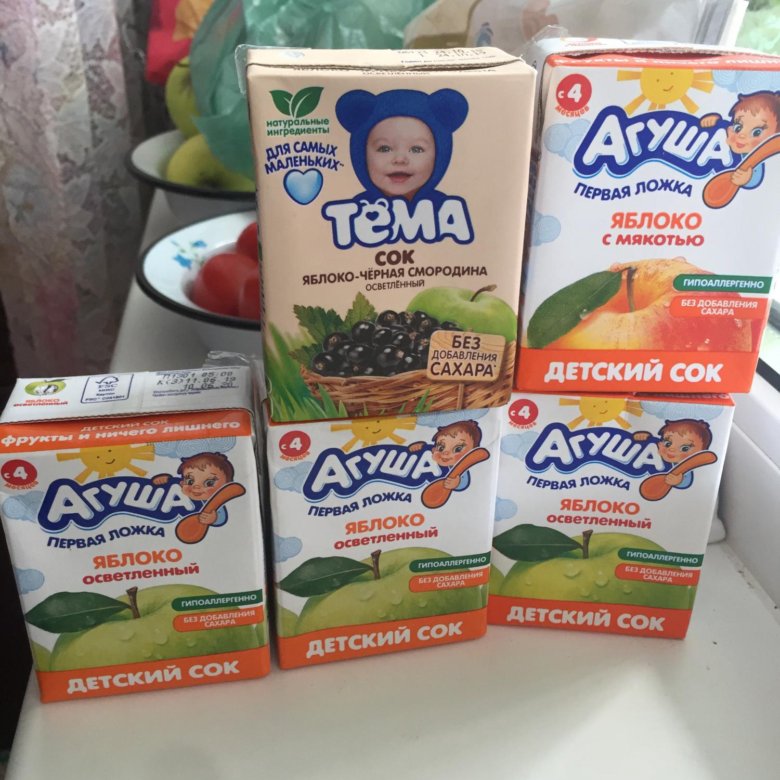
2022 Baby Puree Manufacturer Ranking
1. Best Foreign Baby Food Brand: Gerber
Compare Prices multicomponent purees. Products are distinguished by the highest level of quality and strict control at all stages of production.
Editor's estimate:
A 90-year-old premium brand of baby food from the USA and has earned the respect of parents around the world. Pediatricians and nutritionists are involved in the development of baby food in order to create the highest quality and healthy product that is suitable from the first months of life. By production seasonings, preservatives and flavorings are not used.
For the first stage of complementary feeding, the manufacturer offers one-component vegetable and fruit purees. There are also multi-component formulations with a combination of several vegetables, the addition of meat. Baby food is packaged in glass jars of 80 g.
Gerber products have no flaws, but the cost of products is higher than other brands, so it is not available to all parents.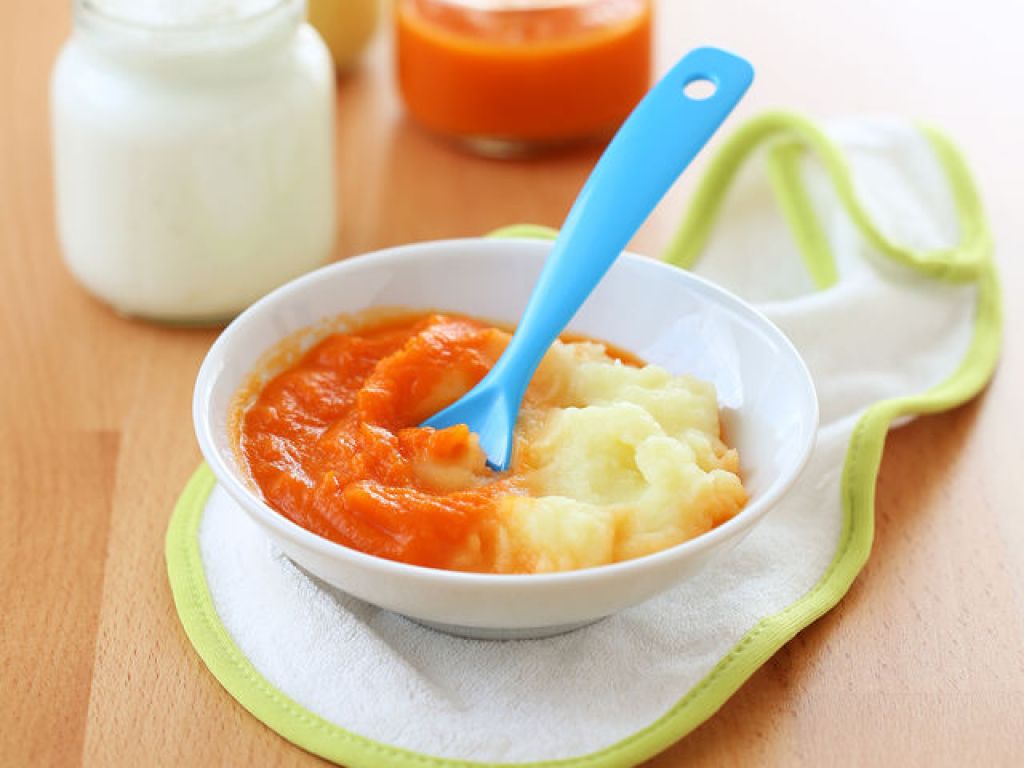
Pros
- many baby food options;
- quality assurance;
- optimum pack size;
- safe composition.
Cons
- uneconomical option.
2. The best Russian baby food brand: Frutonyanya
Compare prices
Why we liked it: various variants of baby purees for babies from 4 months from a domestic manufacturer, which are distinguished by an optimal price-quality ratio.
Editor's estimate:
The Frutonyanya brand is part of the PROGRESS concern, and has been developing and producing high-quality ready-made food for babies for about 30 years. In the brand's product line, you will find both carefully chopped vegetable purees for the first feeding, and more diverse multi-component formulations for babies from 7 months.
The products contain natural healthy ingredients, the puree does not contain synthetic additives and potentially allergenic products.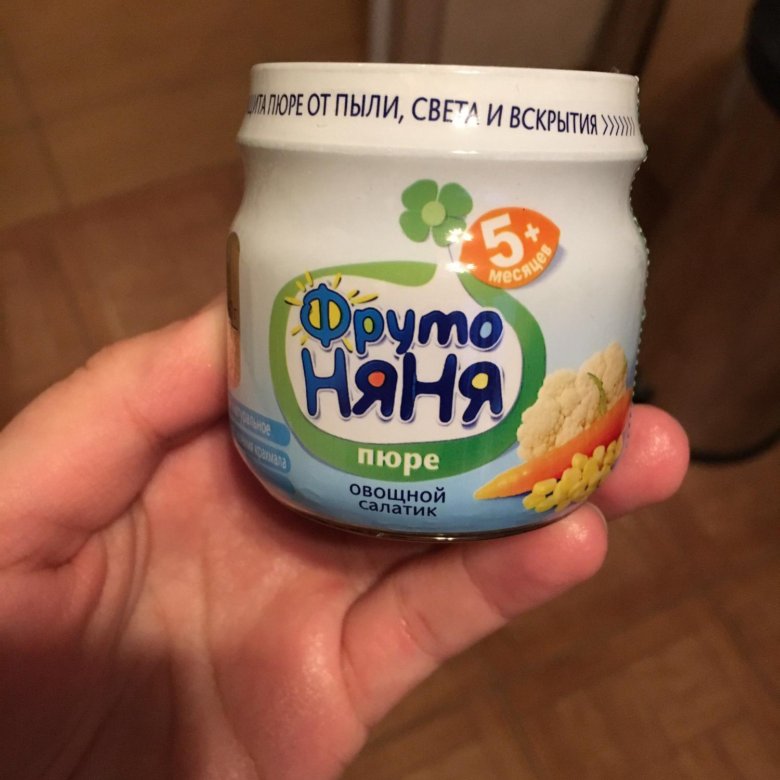 At the same time, the cost of such purees is lower than foreign analogues, and many parents choose them for their babies.
At the same time, the cost of such purees is lower than foreign analogues, and many parents choose them for their babies.
Please note that some items are available in plastic packaging. They are convenient to take with you for a walk, but for permanent use it is better to choose glass containers, which are more environmentally friendly.
Pros
- is more economical than Gerber;
- organic composition;
- large selection of flavors;
- hypoallergenic formulations.
Cons
- have plastic packaging.
3. HiPP
Compare Prices
Why we like it: is a worthy competitor to the Gerber brand, which produces many options for baby food from 4 months of age. HiPP products are famous for German quality and pleasant tastes.
Editor's estimate:
The German company HiPP has a long history and high quality products for children.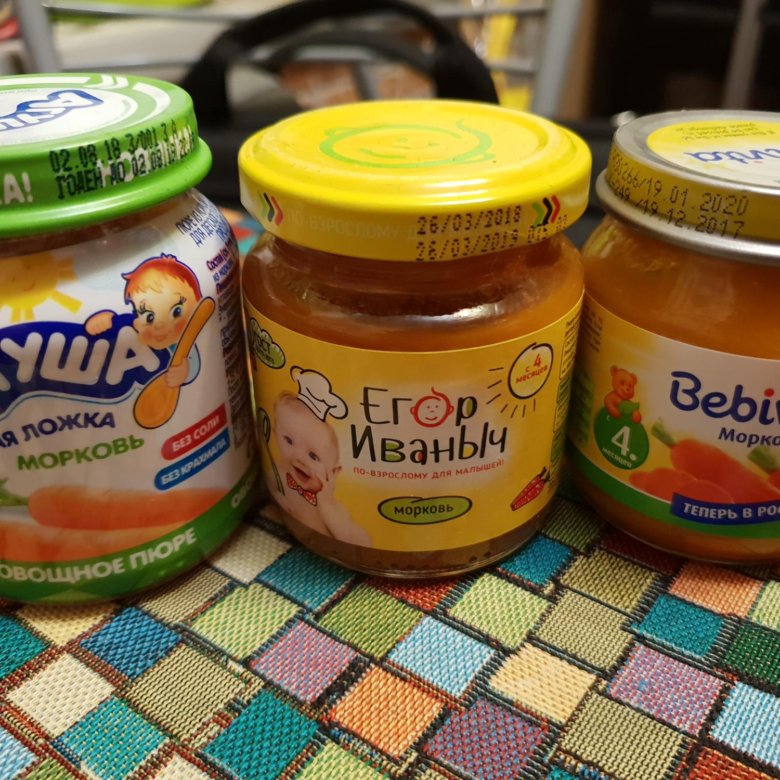 The range includes food options that are suitable for babies from 4 months. In the manufacture of puree, organic products are used that are grown on special plantations, so the products are as safe as possible for children.
The range includes food options that are suitable for babies from 4 months. In the manufacture of puree, organic products are used that are grown on special plantations, so the products are as safe as possible for children.
The composition of the food is good - only the main product and water. The food has a good uniform texture, pleasant taste and smell.
HiPP baby purees have the same drawback as Gerber products - they are significantly more expensive than other options from our rating, so many parents cannot buy it on a regular basis.
Pros
- organic products;
- large assortment;
- pleasant taste;
- no harmful ingredients.
Cons
- products are not available to all parents.
4. Heinz
Compare prices
Why we liked it: baby purees with an original recipe that takes into account the basic needs of children of different ages.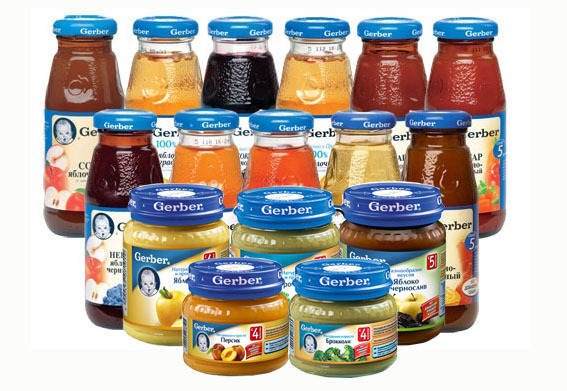 The products are of good composition and high quality.
The products are of good composition and high quality.
Editor's estimate:
Like Gerber, Heinz products are made in the USA. The history of the company has more than 100 years of successful experience, and today the products of this brand are supplied to most countries of the world. The manufacturer produces baby purees without preservatives, GMOs, flavorings and other components harmful to children.
Heinz offers a variety of single and multi-ingredient nutrition options designed to meet the needs of your baby at every stage of development. Purees have a rich taste, a pleasant texture, and are liked by most children.
Please note that cornmeal is present as a thickener. This is a safe product, but sometimes it can provoke allergic reactions.
Pros
- large assortment;
- composition without synthetic components;
- full of beneficial nutrients;
- pleasant organoleptic properties.
Cons
- there is a risk of allergy.
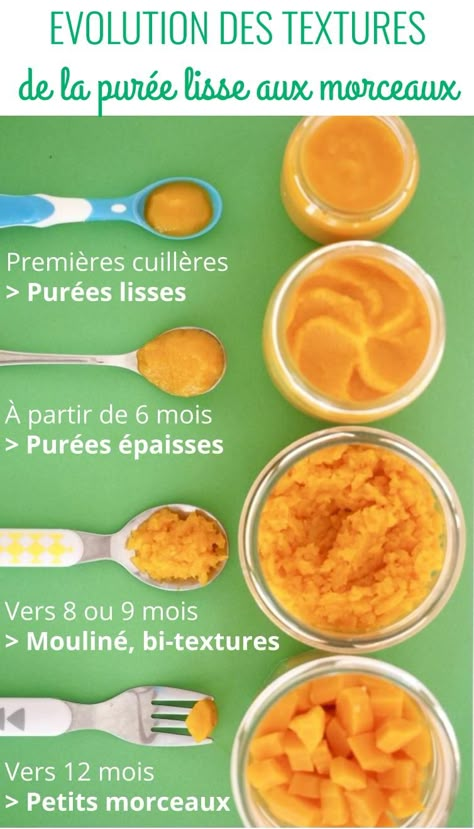
5. Nutricia
Compare Prices
Why we love it: is a premium baby formula with a special 3-step system that helps parents to feed correctly. Products have safe hypoallergenic compositions.
Editor's Score:
Nutricia was founded in the Netherlands and is now part of the large Danone Corporation. Scientists, technologists and pediatricians are working on the development of baby food in order to create the most useful and safe formulations for babies of different ages. The composition does not contain harmful components, GMOs and potential allergens.
Nutricia purees, including those produced under the Milupa brand, are intended for babies over 4 months old, in addition, the manufacturer offers three stages of introducing complementary foods - from one-component vegetable purees to more complex formulations.
The main disadvantage of Nutricia products is that purees are too thin, which is why the baby does not train to chew food and in the future it is more difficult for him to switch to other complementary foods.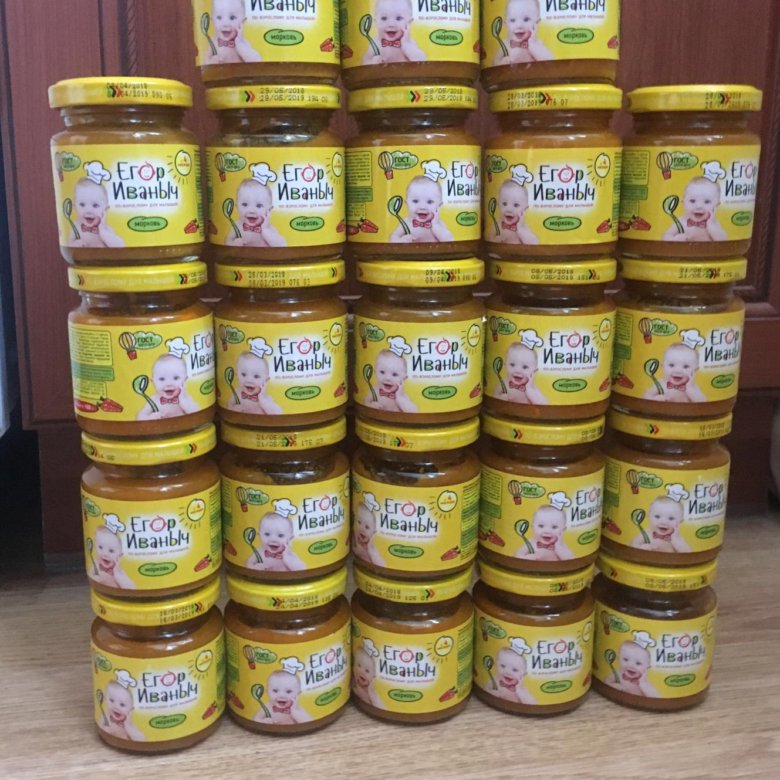
Pros
- three-stage feeding system;
- formulations free from preservatives and flavor enhancers;
- for babies from 4 months;
- based on scientific research.
Cons
- too thin consistency.
6. Semper
Compare prices
Why we love it: is a popular Swedish baby food brand that offers several lines of organic products for babies 4 months and older.
Editor's score:
Semper is Sweden's #1 brand with over 80 years of quality baby food options for babies 4 months to 3 years old. The company offers parents a wide range of purees: both single-component for the first feeding, and multi-component - for older children. All products undergo rigorous quality control, there are no flavorings, dyes, flavor enhancers and GMOs in the compositions. The manufacturer indicates that baby purees are environmentally friendly.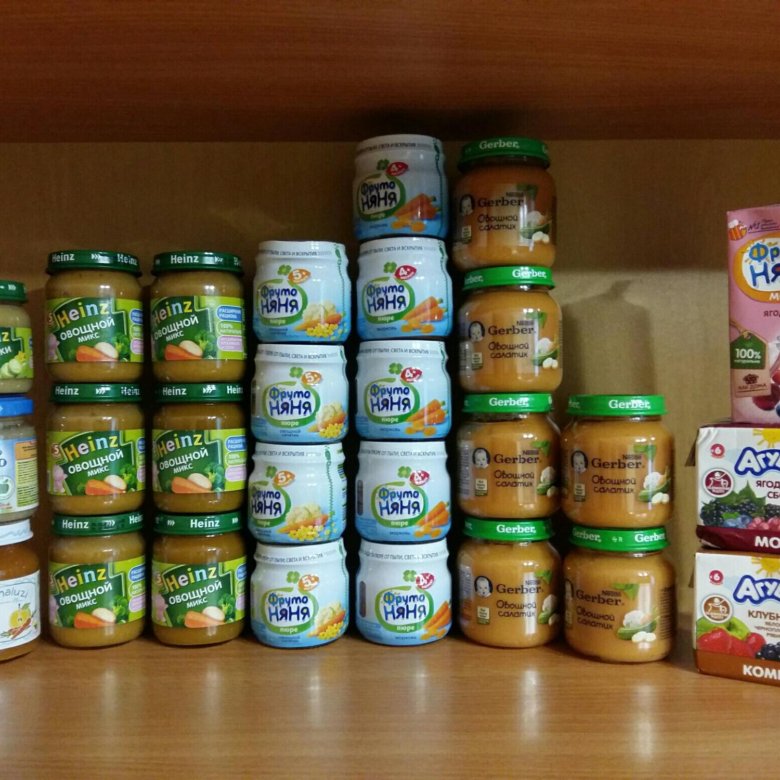
Purees have a good smooth texture and a pleasant taste, so many babies eat Semper products with pleasure. The cost per puree is more affordable than other imported options, but due to the lack of small packages, parents often have to throw away some of the uneaten product.
Pros
- testing at all stages of production;
- formulation free of artificial ingredients;
- uniform consistency;
- environmentally friendly products.
Cons
- only large packages.
7. Grandmother's basket
Compare prices
Why we liked it: is a domestic manufacturer of baby purees according to original recipes, which is distinguished by recognized product quality and all-natural ingredients.
Editor's estimate:
The Russian brand has been on the market for more than 20 years, and during this time has received several prestigious domestic and international awards for its products.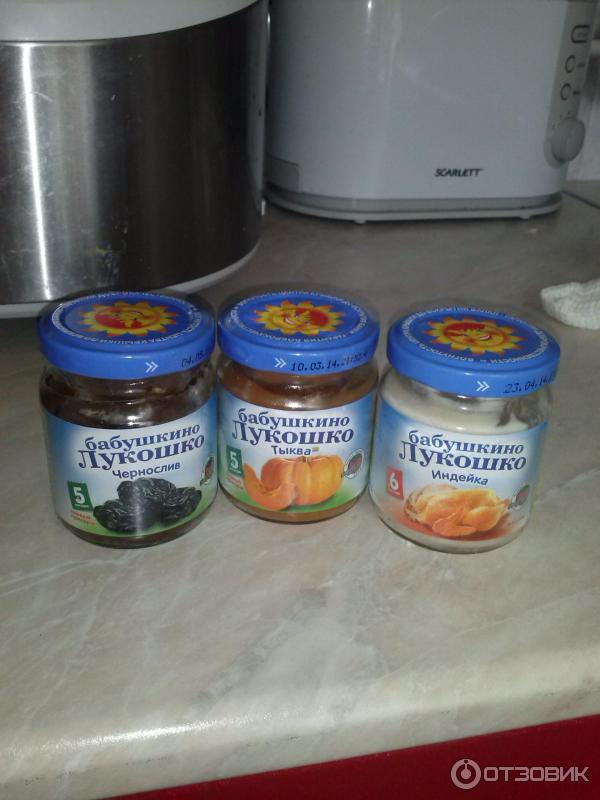 "Grandmother's basket" is not as well known as "Frutonyanya", but is in no way inferior to this brand. Baby purees are developed with input from pediatricians and nutritionists to provide a quality and healthy product.
"Grandmother's basket" is not as well known as "Frutonyanya", but is in no way inferior to this brand. Baby purees are developed with input from pediatricians and nutritionists to provide a quality and healthy product.
Products from ecologically clean regions are used for production, there are no artificial components in the composition. The product line is quite wide - there are single-component fruit and vegetable purees, multi-component formulations with fish, meat, and vegetables.
Please note that parents note the unusual taste of baby food, which is associated with the author's compositions and recipes. Therefore, some children flatly refuse to eat the products of "Grandmother's Basket".
Pros
- has been awarded for quality;
- large selection of goods;
- natural formulations;
- was developed by pediatricians and nutritionists.
Cons
- atypical tastes.
8.
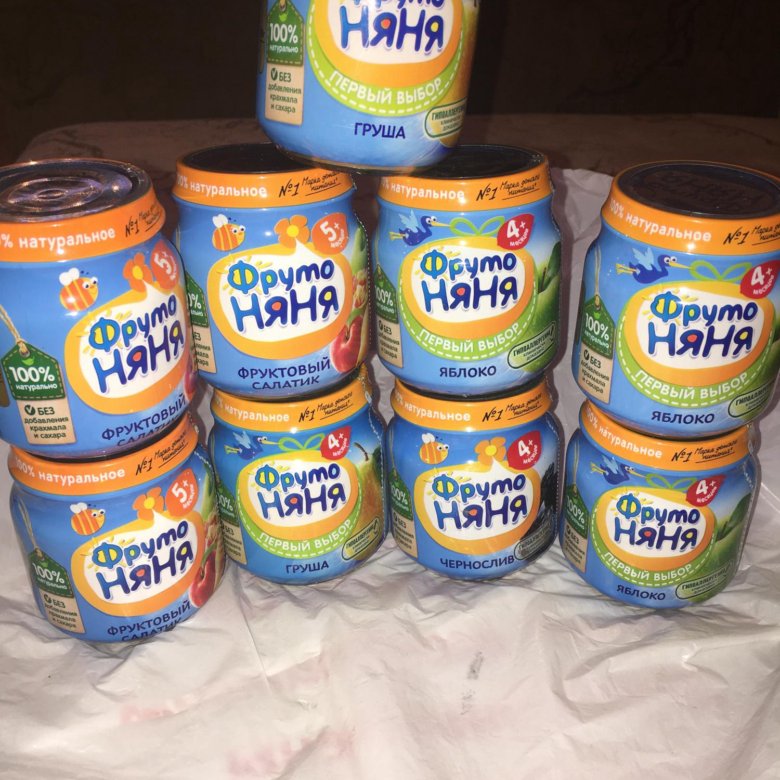 Humana
Humana Compare prices
Why we liked it: is a German brand offering varied and high-quality complementary foods for babies from 5 months old. Products are produced under the supervision of pediatricians.
Editor's estimate:
Humana is a well-known German company that has been on the market for over 65 years. Formulas for baby food are developed with the participation of leading experts in the field of pediatrics and nutrition. Thanks to this, the manufacturer manages to produce balanced and healthy complementary foods for babies from 5 months of age.
Every batch is strictly quality controlled so parents can be sure they are giving their baby the best baby purees. The Humana assortment includes both single-component vegetable and fruit complementary foods, as well as multi-component options.
An important point: the manufacturer produces puree in jars of 125 ml or more, so parents often have to throw away half-eaten product.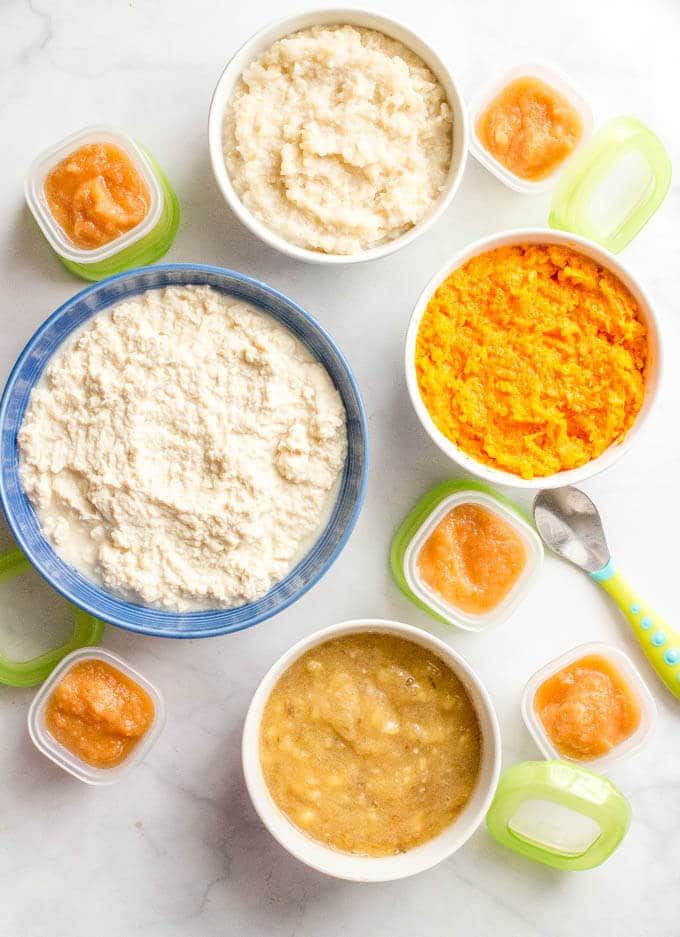 In addition, Humana contains corn flour, as in the nutrition of the Heinz brand.
In addition, Humana contains corn flour, as in the nutrition of the Heinz brand.
Pros
- German premium brand;
- food for children from 5 months;
- strict quality control;
- developed by pediatricians.
Cons
- no small pack;
- contains cornmeal.
TOP-5 questions of parents
Which puree to choose for the first feeding?
The best option to start complementary foods is vegetable purees. They are recommended by all pediatricians, since vegetables are the least likely to cause allergic reactions, are easily digested and are suitable for the functionally immature intestines of a baby. To begin with, it is worth stopping at squash, pumpkin or mashed broccoli, and options with the addition of potatoes are given after 1–1.5 months.
If the baby is prone to allergic reactions, carrot and pumpkin puree is allowed only after 8 months!
When the child is accustomed to vegetable food, you can gradually introduce fruit, meat and fish purees.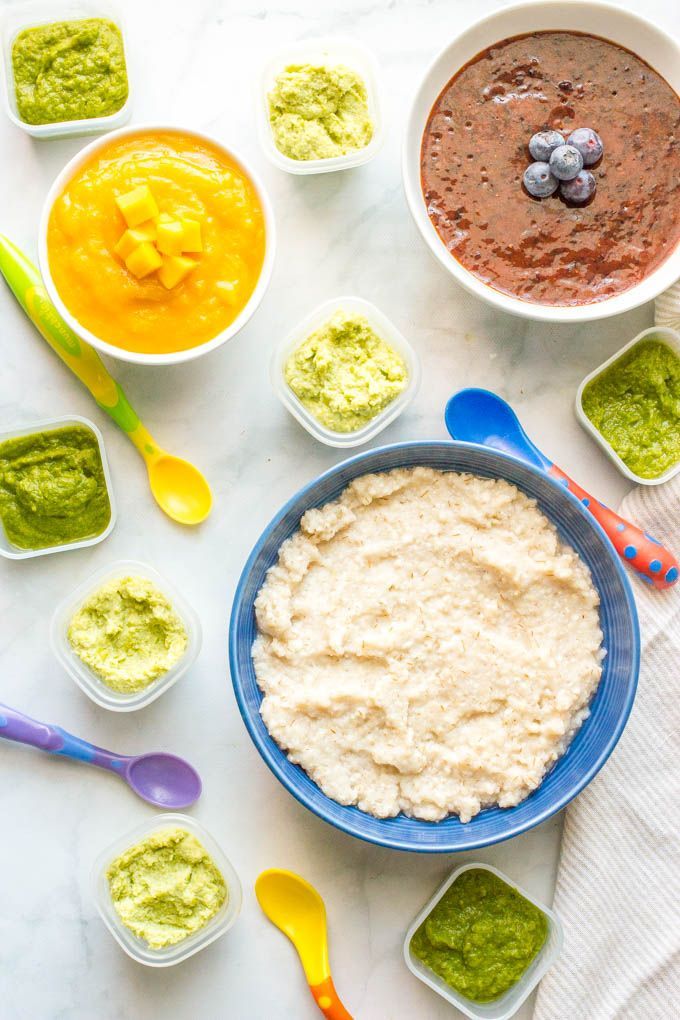 They are offered no earlier than 7 months, and you must follow the rule - each new product is added to the menu no more than 1 time per week.
They are offered no earlier than 7 months, and you must follow the rule - each new product is added to the menu no more than 1 time per week.
How to give puree to a child?
The introduction of complementary foods is started on the condition that the baby feels well, nothing hurts, there are no acute respiratory infections and other problems, and the intestines work normally. To make the baby more willing to eat puree, offer it before the main meal (breast milk or formula).
On the first day, it is enough to give about half a teaspoon of the new product and see the reaction. Since the child is accustomed to milk, the vegetable taste seems strange to him, and many refuse mashed potatoes. If the same happens to you, you should try again the next day or take a different flavor. Then gradually increase the portion during the week to completely replace one feeding. Other products are introduced in the same way.
A well-known pediatrician, Dr. Komarovsky, tells about 10 basic rules for the introduction of complementary foods in a video.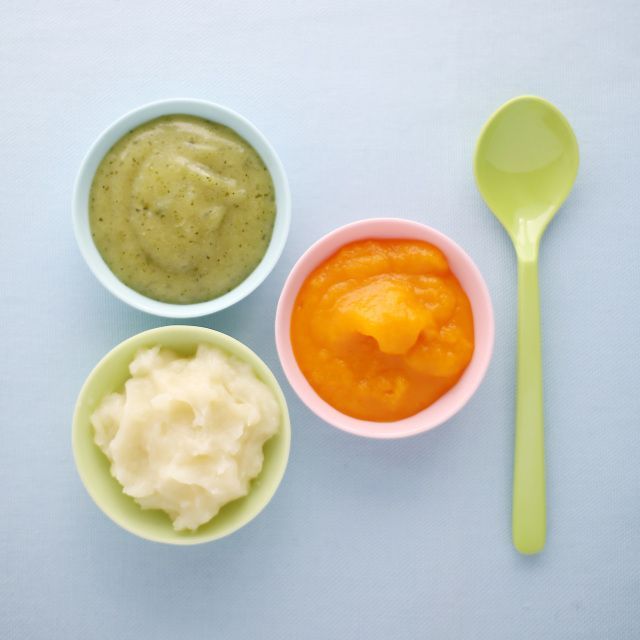
Can I make my own puree?
If you have the time and desire, there is nothing complicated in cooking. Boil a piece of the selected vegetable until cooked, then crush it to a homogeneous consistency. To prevent the puree from becoming too dense, add water or vegetable broth, and it is more convenient to use a blender to grind. In the same way, you can make meat or fish puree. For children 7–8 months old, it is allowed to add a piece of yolk, vegetable or butter to the finished dish.
Please note that baby food must be of good quality. Ideally, take farm vegetables and fruits that are grown in the most sustainable way.
What are the pros and cons of store bought baby food options?
Although baby food can be prepared at home, today's parents are more likely to choose ready-made complementary foods. The main advantages of buying baby food:
- Significant time savings in searching for quality products and preparing them;
- handy package that you can take with you on a trip or a walk;
- multi-component formulations developed by pediatricians that contain all the ingredients that are beneficial for the child;
- environmental friendliness and naturalness of products from premium manufacturers.
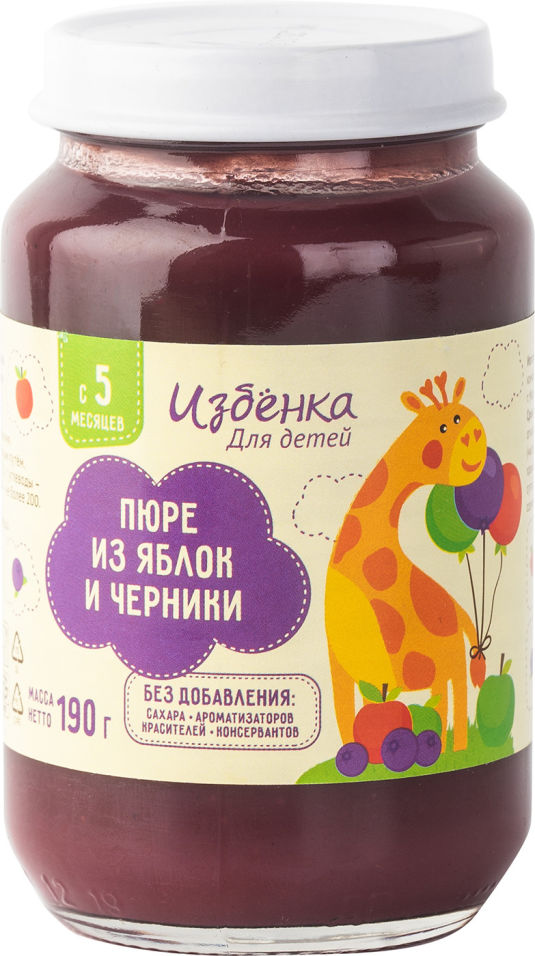
The main drawback is the price. Baby purees are produced in small jars and are expensive, so preparing complementary foods on your own will be several times cheaper.
Can I be allergic to puree?
Any, even the highest quality puree, can potentially cause allergies, as the baby meets a new product for the first time. Due to the immaturity of the child's immune system and its tendency to hyperergic reactions, in the first year of life, parents often experience food allergies. The most "dangerous" foods are red and orange vegetables, all kinds of berries, exotic fruits (mangoes, citrus fruits).
How to understand that a child has an allergy:
- red rash, blisters appeared on the skin;
- the child constantly scratches the body;
- disturbed sleep pattern;
- the child is naughty, whimpers, refuses to eat;
- stool disorders observed;
- there is lacrimation, runny nose.
If these symptoms occur, stop complementary foods, start breastfeeding or formula, and take the baby to the pediatrician as soon as possible.

A final opinion
Cooking your own or buying baby puree is a parent's choice that no one can criticize. However, in modern realities, food in jars saves mother's time, allows her to pay more attention to games and communication with the child. If you decide to stop at ready-made purees, carefully study all the information from the manufacturer and look at our rating to buy a high-quality and healthy product.
Do not forget to watch a helpful video with a pediatrician about the 5 most common mistakes parents make when starting complementary foods: Russian retail is huge! Manufacturers are exercising original packaging solutions to attract young parents. The packaging of baby food has its own trends - it is with the help of packaging that brands develop children, conduct a dialogue with parents, or even prepare babies for adulthood.
Coming to the store, the buyer faces a large selection of goods. Packaging helps him make a decision.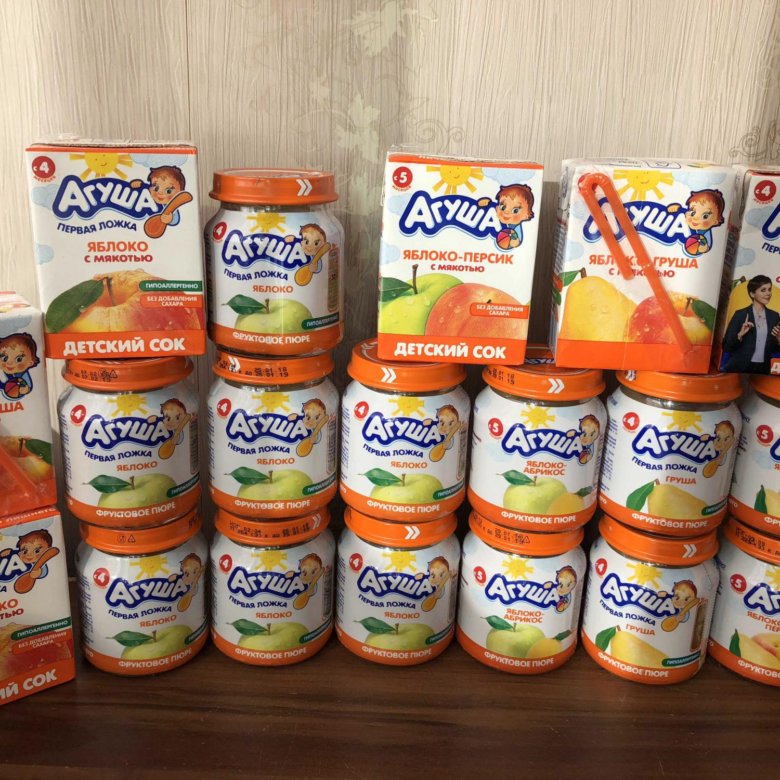 Often these criteria are standard - attractiveness and informativeness. As for baby food, for parents, the main indicators are the quality and safety of the product. But the convenience of packaging becomes its additional bonus.
Often these criteria are standard - attractiveness and informativeness. As for baby food, for parents, the main indicators are the quality and safety of the product. But the convenience of packaging becomes its additional bonus.
We talk about Russian and international experience in attracting the attention of customers on the examples of several brands that produce baby food.
Packaging as a toy
The first thing to mention is the spiders. This is the most "fresh" innovation in the category of baby food, which appeared in Russia much later than in the West. The word “spiders” is still unusual even for experienced parents, and you can often hear the wording “soft packaging”. But now such containers are used in more and more categories, they are used for classic fruit purees, and for dry cereals. One of the main advantages of this package is that it is difficult for a child to get dirty or spill the contents. In addition, spiders are convenient for moms, they are light and compact, they can be taken for a walk or on the road.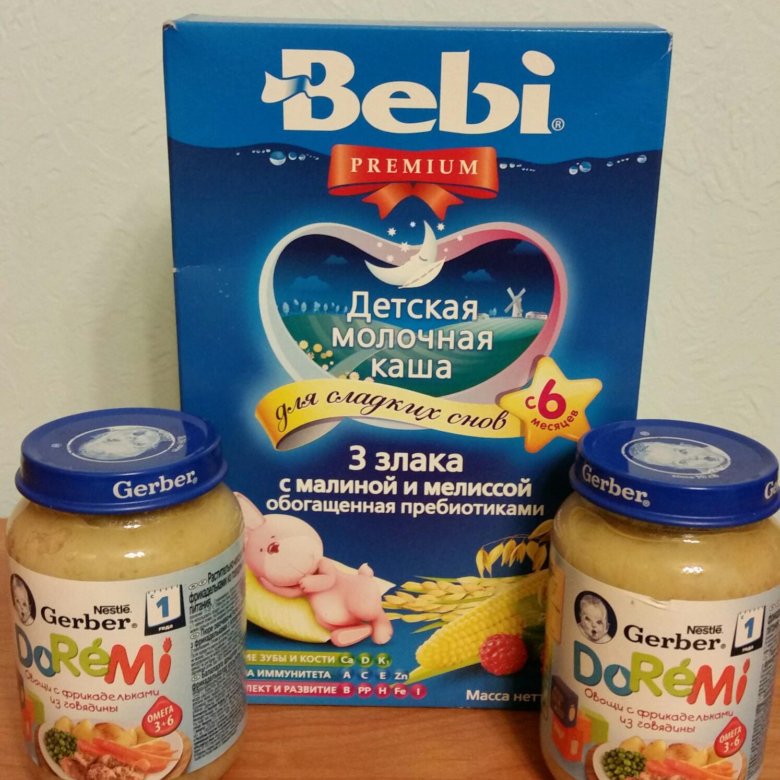
All children love toys. Therefore, it is obvious to use this emotional component in the packaging of baby food. The FrutoNyanya brand followed this path when it offered toy covers to its consumers.
“Our pouch-packed fruit purees come with a special certified toy lid, thanks to which the child can learn colors and count, collect various figures, which in the end can positively influence fine motor skills. For our youngest consumers, we produce fruit-shaped pouch packs to introduce the baby to the first fruits,” says Anna Ivanova Marketing Director of PROGRESS JSC, manufacturer of the FrutoNyanya brand .
Such entertainment also brings up perseverance and independence, stimulates positive emotions. Frutolids are hexagonal with 2 and 3 notches on the sides. And thanks to these grooves, they interlock with each other quite tightly. They can be assembled not only in a plane, but also to build multi-level structures, developing the child's imagination.
Packaging as a tool for dialogue
The next trend in packaging is to communicate with parents. Now manufacturers are striving for the most open dialogue with the consumer. Full information about the composition is placed on the label inscription. In this composition, the consumer understands all the ingredients, there are no abbreviations.
Now manufacturers are striving for the most open dialogue with the consumer. Full information about the composition is placed on the label inscription. In this composition, the consumer understands all the ingredients, there are no abbreviations.
Producers of baby food talk about the production, methods of growing vegetables and fruits, and their suppliers. This trend is also reflected in the packaging – the transparency of the packaging is becoming an important way of communication. For example, transparent labels, fully or partially transparent packaging.
Packaging as an element of eco-responsibility
Another important component of packaging is its tactile qualities, dullness, craft solutions. Consumers are increasingly interested in features that make packaging easier to recycle and reuse. For example, completely biodegradable materials or materials that can be used as fertilizer, or even edible materials. But this trend is still in its infancy in Russia, in the future we will see more completed projects.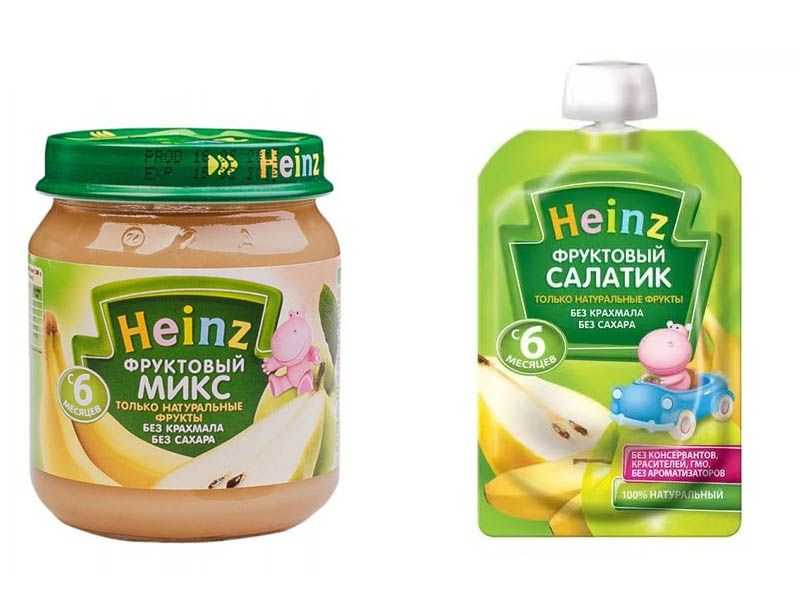
An example here is the young British brand Little Tummy, which is based on the principle of sustainability. Even today, the plastics and papers they use are 100% recyclable and recyclable.
Going even further, Swedish brand Alex & Phil are committed to reducing the use of conventional plastic and gradually moving towards bioplastics and renewable resources such as sugar cane. Starting in 2019, they have switched to aluminum-free packaging, which is 80% bioplastic, and their caps are made entirely of this material.
See also: Retooling an enterprise in a crisis: 5 steps for a manufacturer
Packaging as Smart Entertainment very popular with consumers. Thanks to packaging, manufacturers can create games and competitions in augmented reality mode, quickly and easily redirect the consumer to the site.
For example, last year, in partnership with the popular Shazam app, the FrutoNyanya brand released a limited series of liquid cereals with a special QR code that allows parents and kids not only to eat healthy, but also listen to fairy tales at night using augmented reality.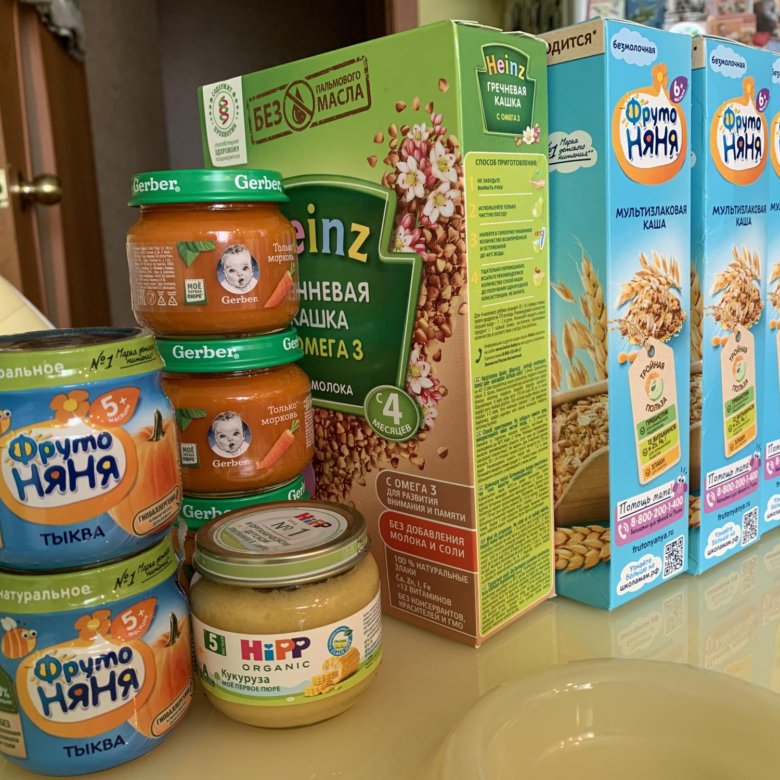
Packaging as a guide to the world of "adult" food
The above trends relate to the Russian market. In the West, there are ways to attract buyers. In Europe and America, brands have long been offering their young customers an "adult" range of dishes. Of course, it meets all the standards of baby food, but in terms of taste it is close to the dishes of an adult diet. This trend can also be seen in the packaging of baby food. For example, the French baby food brand Bledina offers products packaged in an airtight plastic plate. Parents warm up the dishes and, without shifting from this plate, feed the child. The idea of this package is that serving a dish for little ones is no different from serving for adults.
In addition, in Europe, manufacturers of children's yoghurts and puddings only offer large packages. There are no such micro-jars as we have on store shelves. Only a large amount is offered in order for the child to get used to adult standards from childhood.